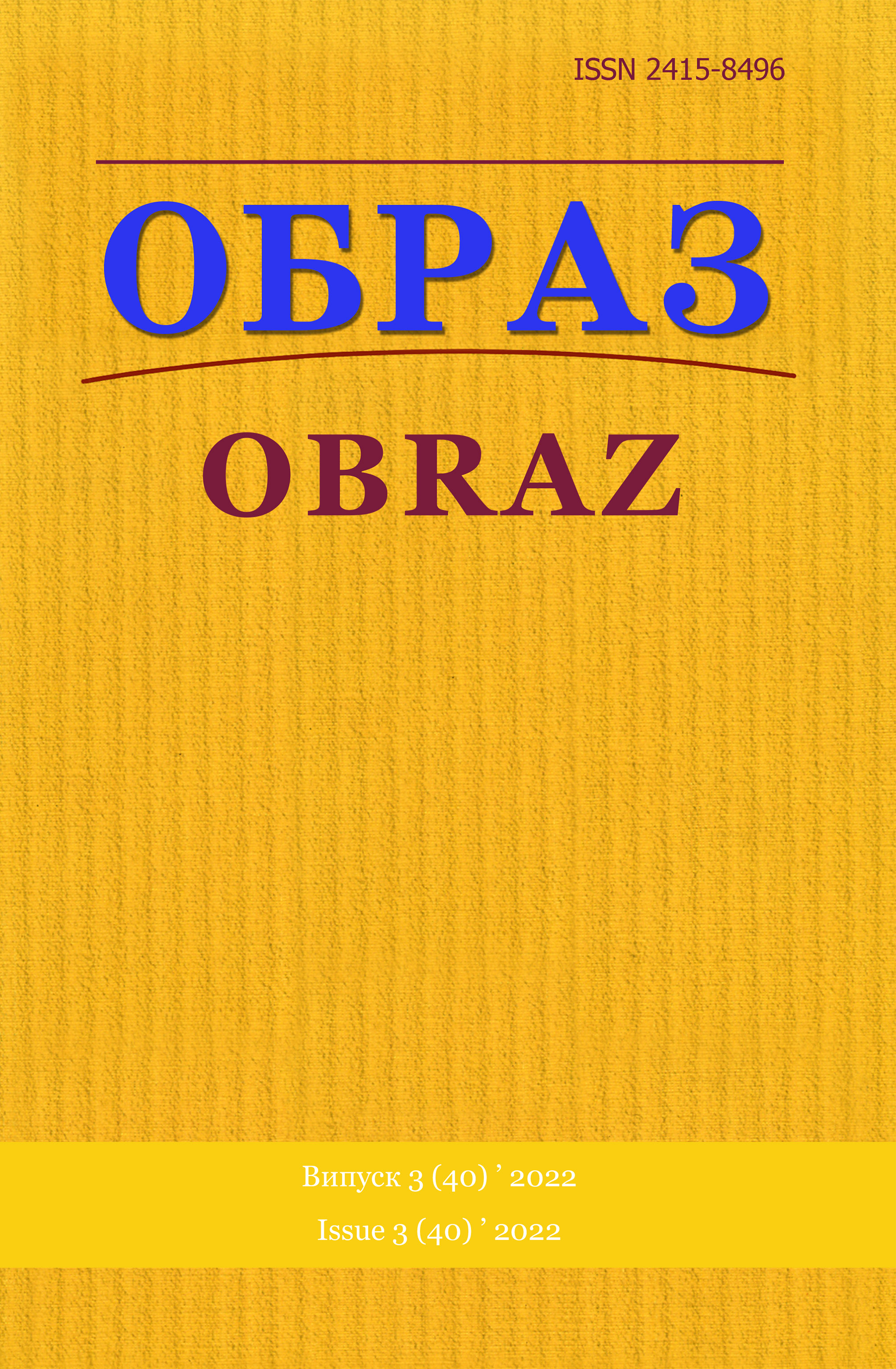Abstract
Introduction. The inclusive literary competition for children and youth is considered as effective raising awareness mechanism. The use of such mechanisms is especially actual in the context of the implementation of state policy in the field of inclusion.
Relevance of the study. The purpose of the research is to study the raising awareness functionality and potential of the Dmytro Ruzhevych Inclusive Literary Competition for Children and Youth.
Methodology. The research methods were: the empirical method in the part of scientific observation of the implementation of the inclusive literary competition, the analysis as the main method of studying regulatory documents, the method of comparative analysis in the context of researching the results of the competition and the generalization method for preparing the summary and conclusions of this article.
Results. The Dmytro Ruzhevych Inclusive Literary Competition for Children and Youth is a unique event today. We studied and analyzed the conditions of participation in the competition and other organizational principles. The raising awareness function of literary competitions has not been sufficiently researched, which absolutely does not meet the modern challenges and demands of society. Research and analysis of all stages of the competition during its two years of existence allowed to systematize the results and formulate an effective raising awareness mechanism that can be applied in the organization of other literary competitions, especially inclusive. It is proposed to use the raising awareness mechanism of the inclusive literary competition for the implementation of the information campaign “Ukraine without barriers”, implemented by the Ministry of Culture and Information Policy of Ukraine. Monitoring of the legislative framework allows us to state that today the definition of raising awareness has not yet been settled in the legal field. This is a risk factor in the context of the spread of blogging culture and various forms of informal education.
Conclusions. Therefore, raising awareness mechanism of the Dmytro Ruzhevich Inclusive Literary Competition for Children and Youth is determined as a highly effective synergy of the main elements: the status of the competition, a professional jury, the distribution of participants into age groups, methodological recommendations for participation, a real motivational story, an educational environment as a practical tool, information campaign on two levels – national and local, genre of competitive works, publication of an electronic collection of works. The fact that the term «raising awareness» is not legally regulated and there is a complete lack of scientific research on the raising awareness functionality of inclusive literary competitions indicates a high research potential and should stimulate the scientific interest.
References
1. Bessarab, A.O. (2015), «Ukrainian book communication in the context of international literary competitions», Derzhava ta rehiony: Humanitarni nauky [State and Regions. Series: Humanities], no. 2 (41), pp. 66–72, available at: file:///C:/Users/HP/Downloads/drgn_2015_2_15.pdf.
2. Bondar, O. (2018), «Literary competition in the context of publishing», Polihrafiia i vydavnycha sprava [Printing and Publishing], no. 1(75), pp. 131–138, available at: file:///C:/Users/HP/Downloads/ Pivs_2018_1_17.pdf.
3. Bondar, O. (2020), «Marketing aspects of the functioning of literary competitions and prizes», Derzhava ta rehiony: Humanitarni nauky [State and Regions. Series: Humanities], no. 2 (42), pp. 90– 94.
4. Zholdak, O.O. (2012), «Book competitions as an object of coverage in online publications», Polihrafiia i vydavnycha sprava [Printing and publishing], no. 4 (60), pp. 40–44.
5. Zbirka opovidan uchasnykiv Inkliuzyvnoho literaturnoho konkursu dlia ditei ta yunatstva imeni Dmytra Ruzhevycha, available at: http://vcenter12.com/inclusivebook (accessed 11 August 2022).
6. Inkliuzyvna literatura. Internet-resurs ukrainskoi inkliuzyvnoi literatury. INCLUSIVE Books, available at: https://inclusivebooks.org (accessed 10 August 2022).
7. Karta prokhodzhennia proektu. Pro vnesennia zmin do Zakonu Ukrainy «Pro kulturu» (shchodo prosvitnytstva). Proekt Zakonu Ukrainy vid 15.05.2015 № 2857. URL: https://ips.ligazakon. net/document/view/jh27d00i?an=3&ed=2015_05_15.
8. Kachak, T. (2018), Trends in the development of Ukrainian prose for children and youth at the beginning of the 21st century: a Textbook, Akademvydav, Kyiv, 320 p.
9. Ohar, E. I. (2011), Literary and publishing competitions in the promotion of children’s books. Naukovi Pratsi Kamianets-Podilskoho Natsionalnoho Universytetu imeni Ivana Ohiienka. Filolohichni nauky [Scientific works of Ivan Ohienko Kamianets-Podilskyi National University. Philological sciences], no. 25, pp. 233-236, available at: http://nbuv.gov.ua/UJRN/Npkpnu_fil_2011_25_72.
10. Osmolovska, O. A. (2021), Inclusive literature in modern European book publishing: Tutorial, Vydavnychyi tsentr «12», Kyiv, 184 p.
11. Kabinet Ministriv Ukrainy (2021), rozporiadzhennia Pro skhvalennia Natsionalnoi stratehii iz stvorennia bezbariernoho prostoru v Ukraini na period do 2030 roku, 14.04.2021, available at: https:// zakon.rada.gov.ua/laws/show/366-2021-%D1%80#Text (accessed 18 August 2022).
12. American Library Association, available at: https://www.ala.org/awardsgrants/schneiderfamily-book-award (accessed 18 August 2022).
13. Dolly Gray Children’s Literature Award, available at: https://www.dollygrayaward.com/ (accessed 11 August 2022).
14. Driscoll, B. (2013), Twitter, literary prizes and the circulation of capital. By the book, available at: https://www.academia.edu/6025475/Twitter_Literary_Prizes_and_the_Circulation_of_ Capital?from=cover_page.
15. Driscoll, B. (2009), The Politics of Prizes. Meanjin, no. 68(1), pp. 71–78, available at: https:// search.informit.org/doi/10.3316/informit.350269261515798.
16. De Nooy, W. (1989), Literary prizes: Their role in the making of children’s literature Poetics, Volume 18, Issues 1–2, April, pp. 199-213, available at: https://doi.org/10.1016/0304- 422X(89)90029-6.
17. Wopperer, E. (2011), Inclusive Literature in the Library and the Classroom. Knowledge Quest, no. 39(3), pp. 26-40, available at: https://eric.ed.gov/?id=EJ963437 (accessed 11 August 2022).

This work is licensed under a Creative Commons Attribution 4.0 International License.

